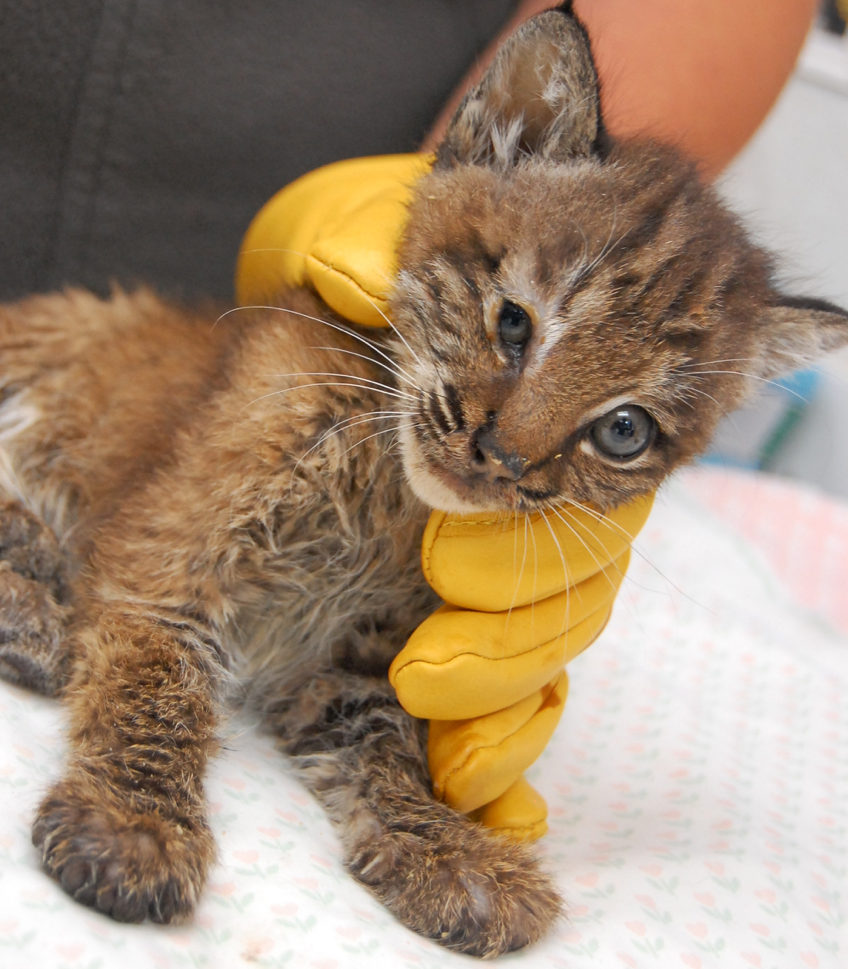
A study of a Bobcat (Lynx rufus) population in Southern California (see attached below) published in December 2017 demonstrates that urbanization (loss of natural habitat) coupled with exposure to anti-coagulant rodenticides (ARs) has led to a significant decline in their numbers, as well as untold suffering. Habitat loss and AR exposure were shown to be significant stressors that suppress Bobcats’ immune systems and organ function, thereby increasing their susceptibility to notoedric mange.
All forms of mange are caused by a parasitic, burrowing mite. Different species of mites cause different types of mange that range in degree of seriousness. Mange is spread from animal to animal with loss of habitat presumed to cause some of the problem simply by bringing individuals into closer contact. Notoedric mange is primarily a felid (cat) and rodent disease. Notoedric mange may be a significant player in the decline of Western Gray Squirrels (Sciurus griseus), who are listed as threatened in the state of Washington, and as a state sensitive species in Oregon.
Habitat loss coupled with the toxic burden of rodenticides, which are ubiquitous in California and the world, are a terrible one-two punch that is wreaking havoc on our wild neighbors.
Quoting from the study on Bobcats:
Consequently, AR exposure may influence mortality and has population-level effects, as previous work in the focal population has revealed substantial mortality caused by mange infection. The secondary effects of anticoagulant exposure may be a worldwide, largely unrecognized problem affecting a variety of vertebrate species in human-dominated environments. (emphasis added)
 Bobcat kitten in care at HWCC in 2013. This young orphan didn’t make it – we suspected rodenticide poisoning. (photo: Laura Corsiglia/BAX)
Bobcat kitten in care at HWCC in 2013. This young orphan didn’t make it – we suspected rodenticide poisoning. (photo: Laura Corsiglia/BAX)
BAX will be working to eliminate these poisons, both legislatively and culturally, this year and onward until the common use of them is ended forever. Your support will help our efforts. Thank you for being here. We need you.


